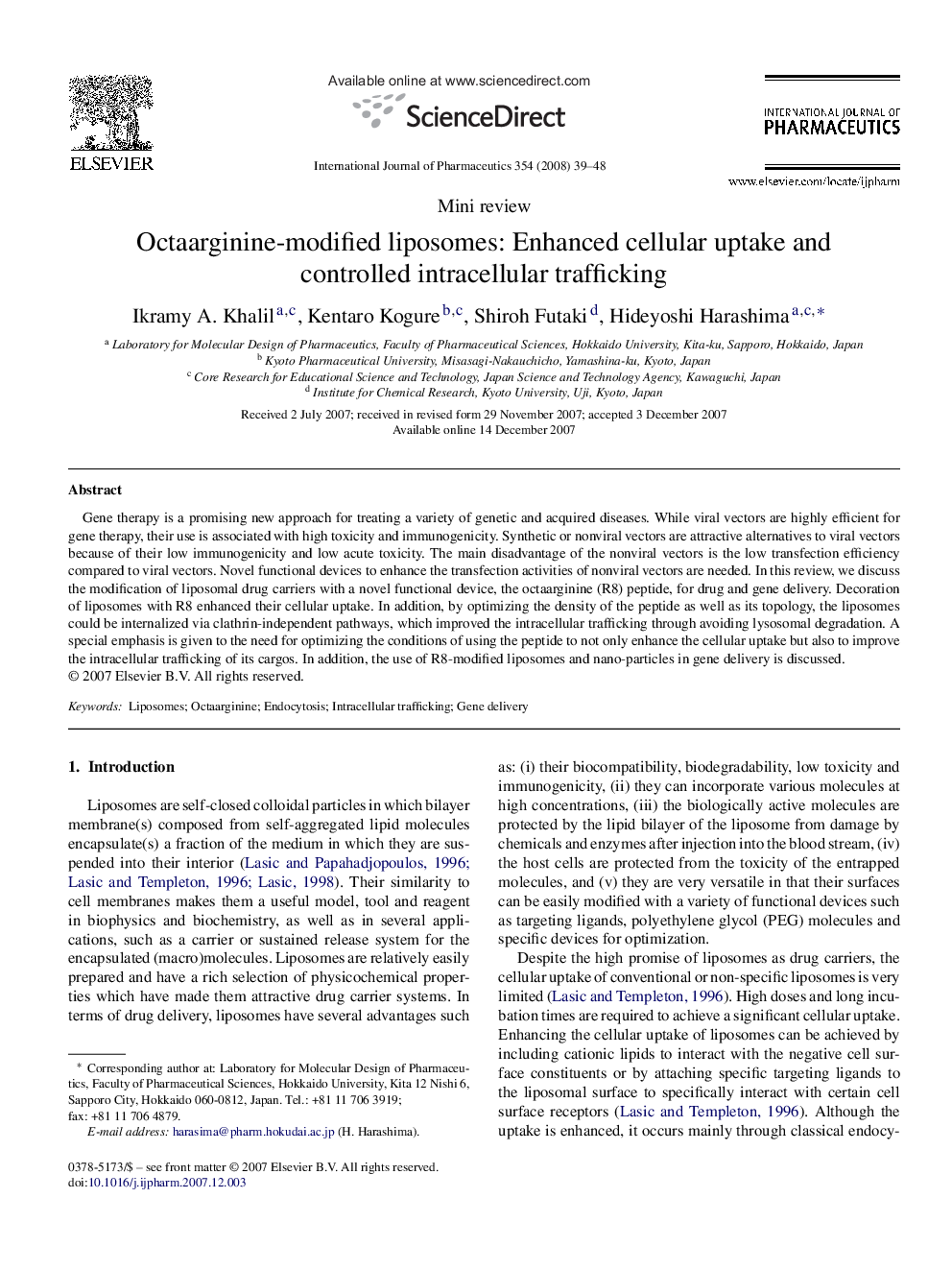| Article ID | Journal | Published Year | Pages | File Type |
|---|---|---|---|---|
| 2505527 | International Journal of Pharmaceutics | 2008 | 10 Pages |
Gene therapy is a promising new approach for treating a variety of genetic and acquired diseases. While viral vectors are highly efficient for gene therapy, their use is associated with high toxicity and immunogenicity. Synthetic or nonviral vectors are attractive alternatives to viral vectors because of their low immunogenicity and low acute toxicity. The main disadvantage of the nonviral vectors is the low transfection efficiency compared to viral vectors. Novel functional devices to enhance the transfection activities of nonviral vectors are needed. In this review, we discuss the modification of liposomal drug carriers with a novel functional device, the octaarginine (R8) peptide, for drug and gene delivery. Decoration of liposomes with R8 enhanced their cellular uptake. In addition, by optimizing the density of the peptide as well as its topology, the liposomes could be internalized via clathrin-independent pathways, which improved the intracellular trafficking through avoiding lysosomal degradation. A special emphasis is given to the need for optimizing the conditions of using the peptide to not only enhance the cellular uptake but also to improve the intracellular trafficking of its cargos. In addition, the use of R8-modified liposomes and nano-particles in gene delivery is discussed.
